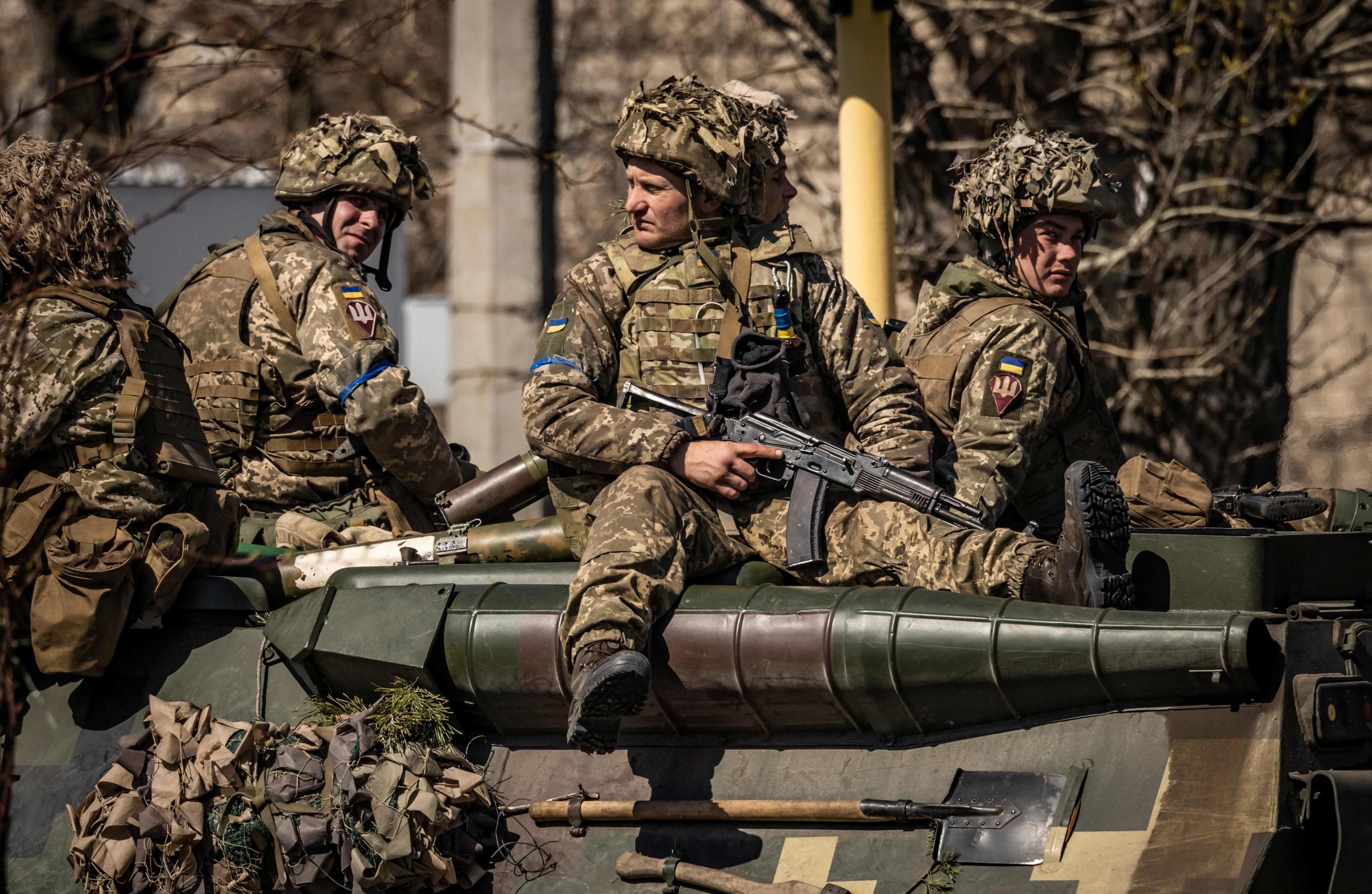Germany considers exchanging arms with Slovenia to arm Ukraine
Germany could circumvent its inability to arm Ukraine by exchanging arms with Slovenia to give some to Kiev as the latter undergoes a war.
-

Ukrainian soldiers in Lugansk, Lugansk People's Republic
Germany is pondering giving armored vehicles to Slovenia in return for a shipment of Soviet-made T-72 tanks to Ukraine in light of mounting pressures on Berlin to pump more arms to Kiev as the war in the country unfolds, German media reported Thursday.
Under the swap deal, Germany will send Marder infantry fighting vehicles and Fuchs armored personnel carriers to its eastern NATO partner, Germany's n-tv broadcaster said.
Slovenia, in exchange, requested more modern hardware, including Puma and Boxer armored vehicles and Leopard 2 battle tanks.
German Chancellor Olaf Scholz had come under fire over his refusal to send heavy weapons to Ukraine from his country's stock, though his decision was backed by the German military.
"We would no longer be able to react to eventualities, and that would significantly weaken our defensive capability," Bundeswehr vice-chief Lieutenant General Markus Laubenthal had said Wednesday to explain his country's decision not to provide IFVs to Ukraine.
According to the official, if Germany were to do that, it would be unable to defend itself, promising Ukraine some one billion euros to buy weapons instead.
Kiev had schemed to buy 100 decommissioned Marders from German defense firm Rheinmetall. However, the manufacturer said they needed to be restored and it would be several months before they would be operational.
In response, Ukraine proposed an arrangement that would see Germany sending 100 of its operation Marders to Ukraine and take the restored vehicles in their place, though Scholz rejected this offer.
The deal between Slovenia and Germany would boost the latter's military capabilities, which, in turn, would allow it to send arms to Ukraine, though Russia had warned that any arms shipment would be seen as a valid military target.
In light of the war in Ukraine and according to a study conducted by INSA pollsters at the request of Bild am Sonntag, German Chancellor Olaf Scholz's popularity rating has reached its lowest point since he took office last December, with over half of the people dissatisfied with his policies.
Right-wing National Rally party leader Marine Le Pen called on Friday for ending France's weapons manufacturing cooperation with Germany, citing divergent visions over the future of Europe's security.

 3 Min Read
3 Min Read









